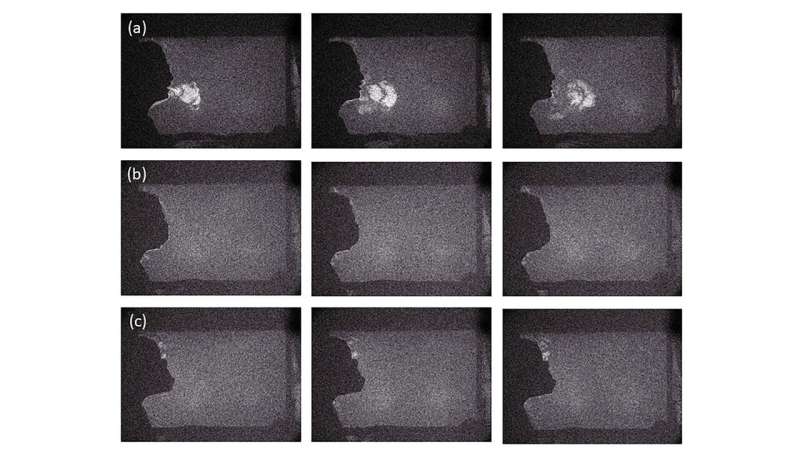
When singers generate beautiful notes, they can also release harmful particles like the coronavirus. Wearing a mask prevents virus transmission, but it also affects the sound.
Thomas Moore, from Rollins College, will discuss his observations of a professional soprano singing with and without six types of masks at the 181st Meeting of the Acoustical Society of America, which will be held Nov. 29-Dec. 3. The talk, “Aerosol propagation and acoustic effects while singing with a face mask,” will take place Wednesday, Dec. 1, at the Hyatt Regency Seattle as part of a session on making music during a pandemic.
Moore found masks effectively block aerosols, forcing the breath to exit at the sides. From there, the aerosols travel upward, rising with the upward flow of body heat from the singer. The dispersal of breath likely dilutes the virus and prevents the spread of COVID-19.
At low frequencies, masks reduced volume but did not have other effects on the singing. However, masks did reduce the power of higher frequencies, which made the enunciation of words less clear and altered the timbre. Masks had no effect on the pitch.
One of the masks tested, a singer’s mask, was designed specifically with singers in mind. All six masks blocked the forward flow of breath, but the singer’s mask did so with the least change in sound.
“A normal cloth mask can reduce the high frequencies by as much as 10 times, but a singer’s mask will reduce them by a factor of less than two,” said Moore.
Source: Read Full Article
